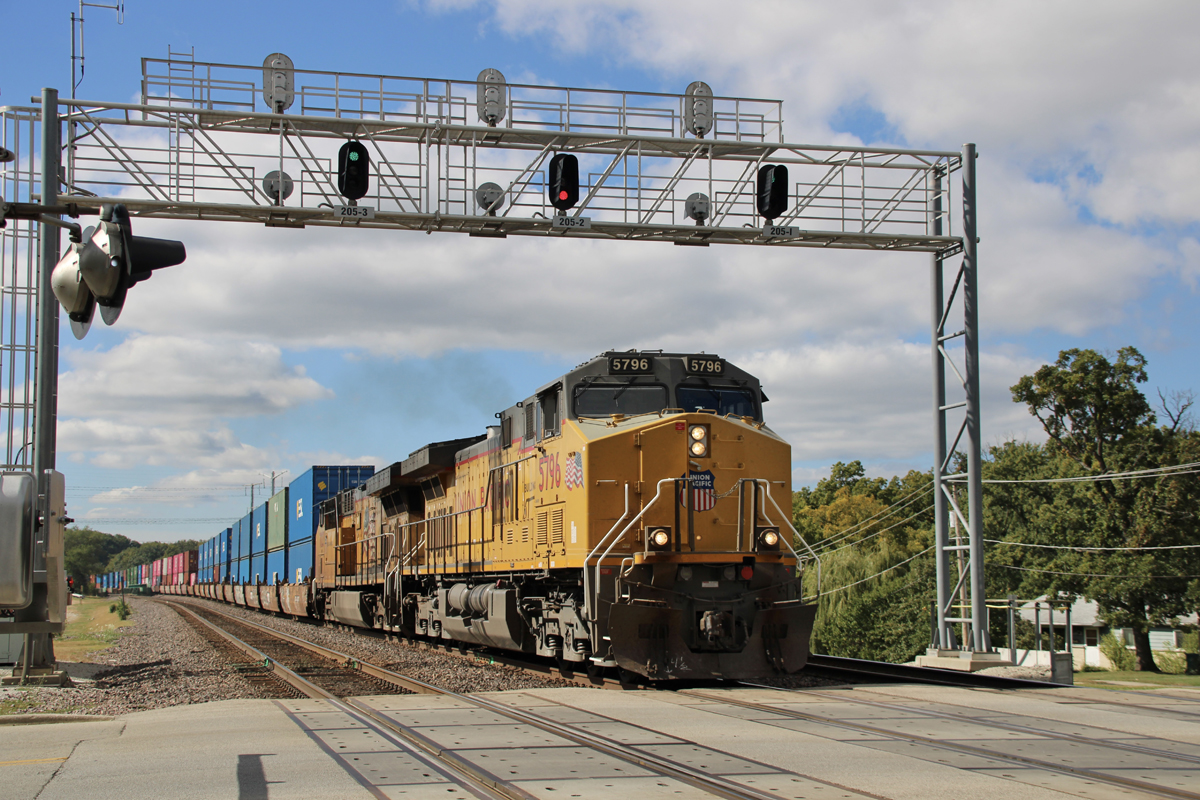 A Union Pacific intermodal train heads east through Lombard, Ill., on Oct. 11, 2025. Union Pacific CEO Jim Vena this week responded to a BNSF claim that a UP-Norfolk Southern merger would lead to the elimination of 300 intermodal lanes. David Lassen
A Union Pacific intermodal train heads east through Lombard, Ill., on Oct. 11, 2025. Union Pacific CEO Jim Vena this week responded to a BNSF claim that a UP-Norfolk Southern merger would lead to the elimination of 300 intermodal lanes. David Lassen
A back-and-forth exchange this week between the CEOs of Union Pacific and BNSF Railway over potential impacts of a Union Pacific-Norfolk Southern merger has seen UP CEO Jim Vena refuting BNSF’s claim that Union Pacific would eliminate 300 intermodal lanes if the UP-Norfolk Southern merger is approved, and BNSF CEO Katie Farmer saying Vena’s statement is welcome.
The 300-lane figure is included in a one-page BNSF position paper on the proposed merger, headlined “Costly, Unnecessary, Anti-Competitive and Bad for the U.S. Economy.” After making the claim that 300 intermodal lanes would be closed, it says, “After the last major round of mergers, 90 intermodal facilities closed, resulting in several hundred fewer intermodal lane options and communities permanently losing their intermodal access.”
Vena, in a presentation Tuesday (Nov. 11) to the Baird 2025 Global Industrial Conference, said he had the BNSF document sitting in his bathroom “next to the sink with the toothpaste.
“I go, ‘really?’ Why would we shut off 300 lanes?” Vena said, according to a transcript. “First of all, we do not have 300 lanes in intermodal. There are not that many lanes. … I said to Kenny [Rocker, UP executive vice president, marketing and sales], ‘are you hiding 290 lanes from me that I do not understand? They said we are going to shut down that many.’ I laugh.
“I find it interesting that Berkshire is coming after us that hard.”
Farmer responded in a Wednesday statement, saying, “I’m sure the nation’s rail customers are relieved that UP is committing to keep all current intermodal lanes open if their merger with NS is approved. UP highlighted in prior rail industry mergers that the new merged railroad usually raises rates on competing interchange partners to the point of making those lanes economically uncompetitive.”
The BNSF statement quoted UP filings with the Surface Transportation Board on the Canadian Pacific-Kansas City Southern merger, including a call for the board to “impose conditions to prevent the reduction of competitive options at gateways” if the merger took place.






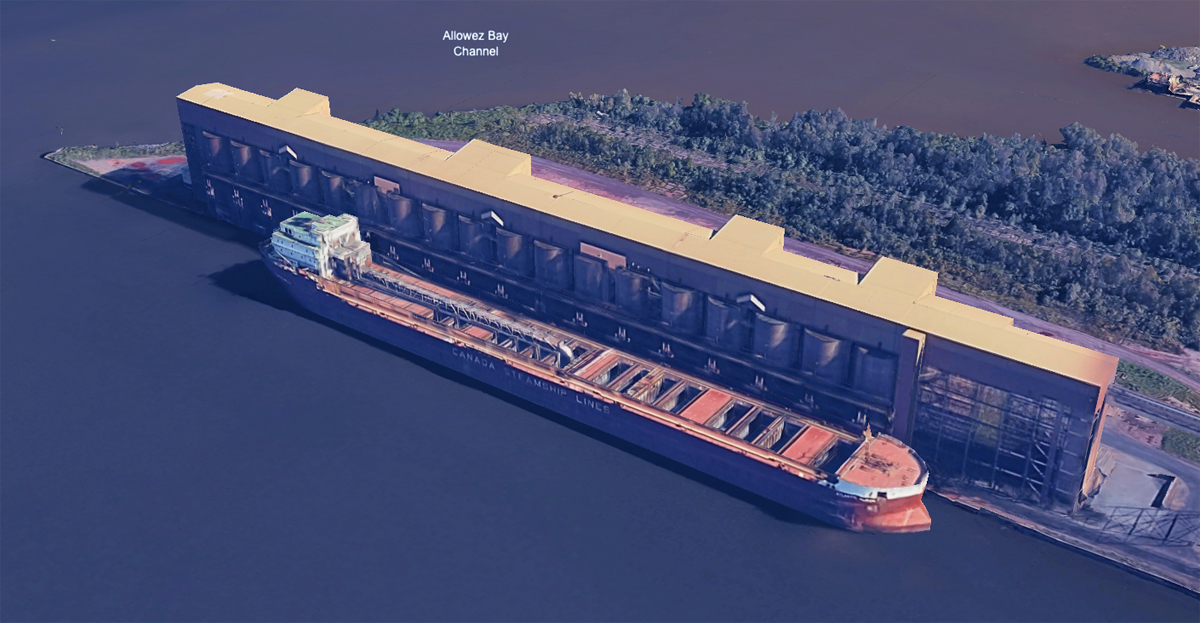
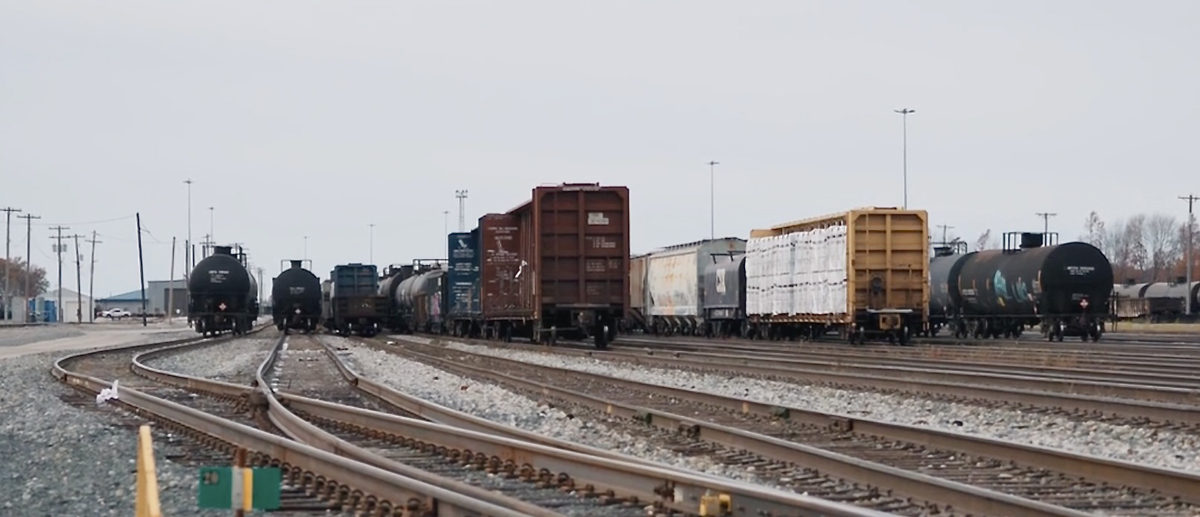
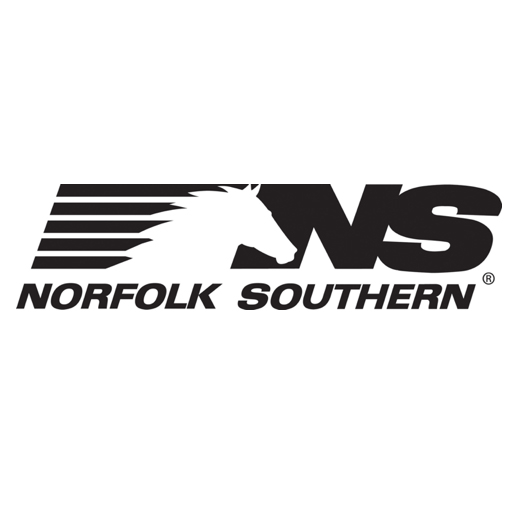
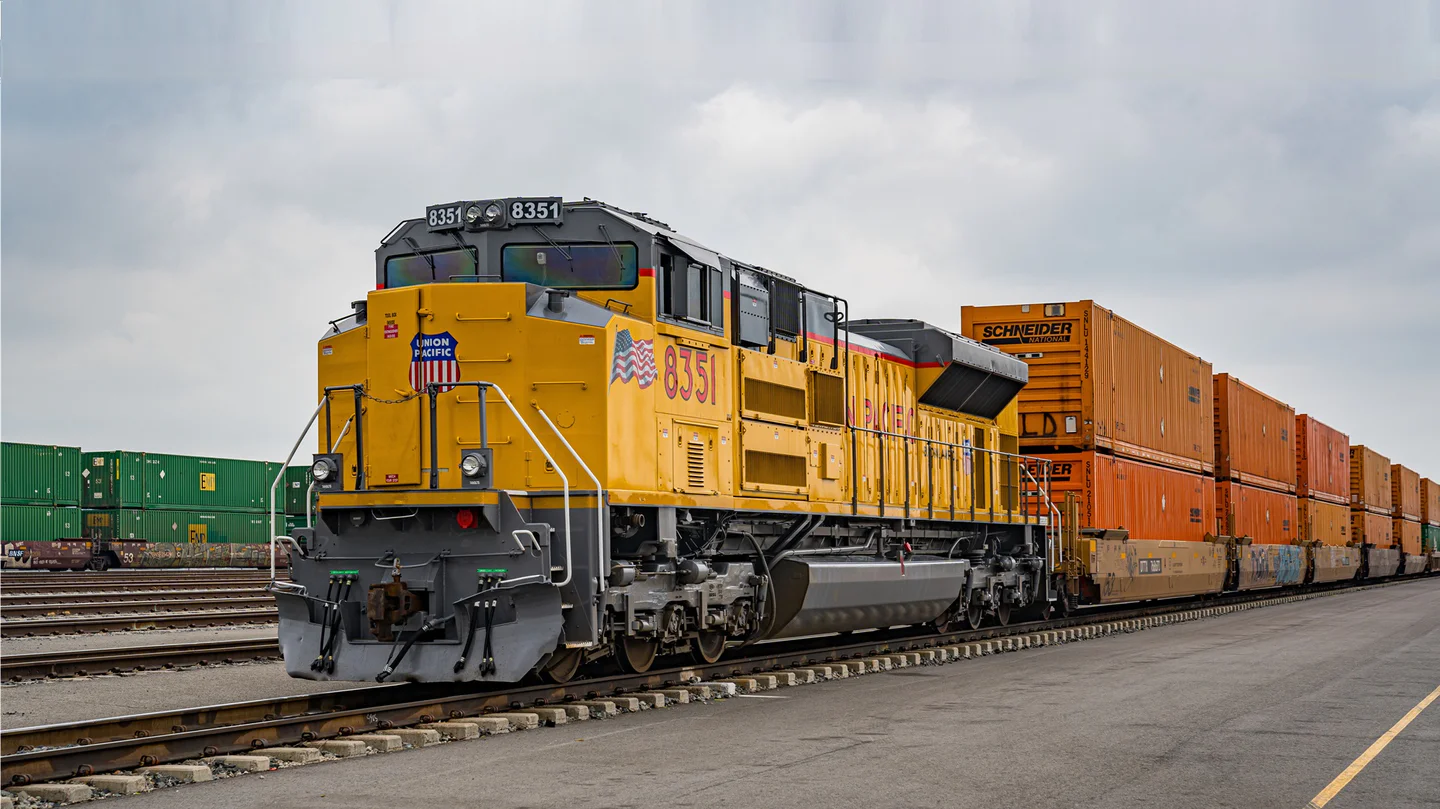




Andy, would absolutely agree on your statement about Vena. However, I don’t know how else he could pull off merger without his head up wall streets and current administration in all fairness. For better or worse he has gone there.
Berkshire is coming hard after the merger because it will upset their gravy train of continuous dividends & cash ever since they bought out BNSF & made it private in my opinion.
Berkshire has two options in my mind. Continue pouting or put its pile of cash to work. The pile of cash to buy CSX or a true generational capital investment such as electrification their main corridors, build a string of western power plants (gas, solar, wind, nuclear, you name it) and reap awards of efficiencies for generations.
Farmer is delusional. And Vena has his head up wall streets and this current adminis’ a$$.
Actual practice would say you are very misinformed. If you know something, prove it with facts. Inuendo will egt you no where…